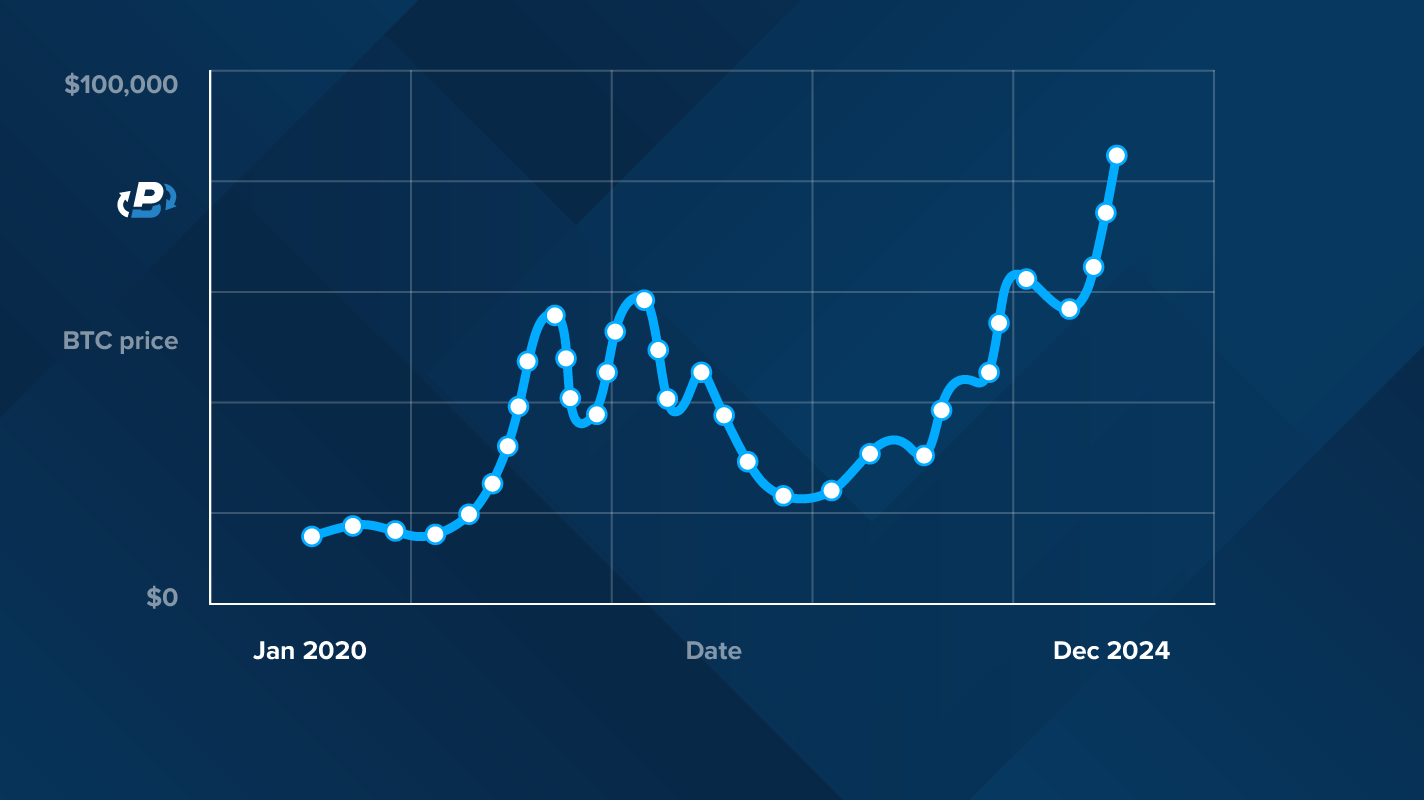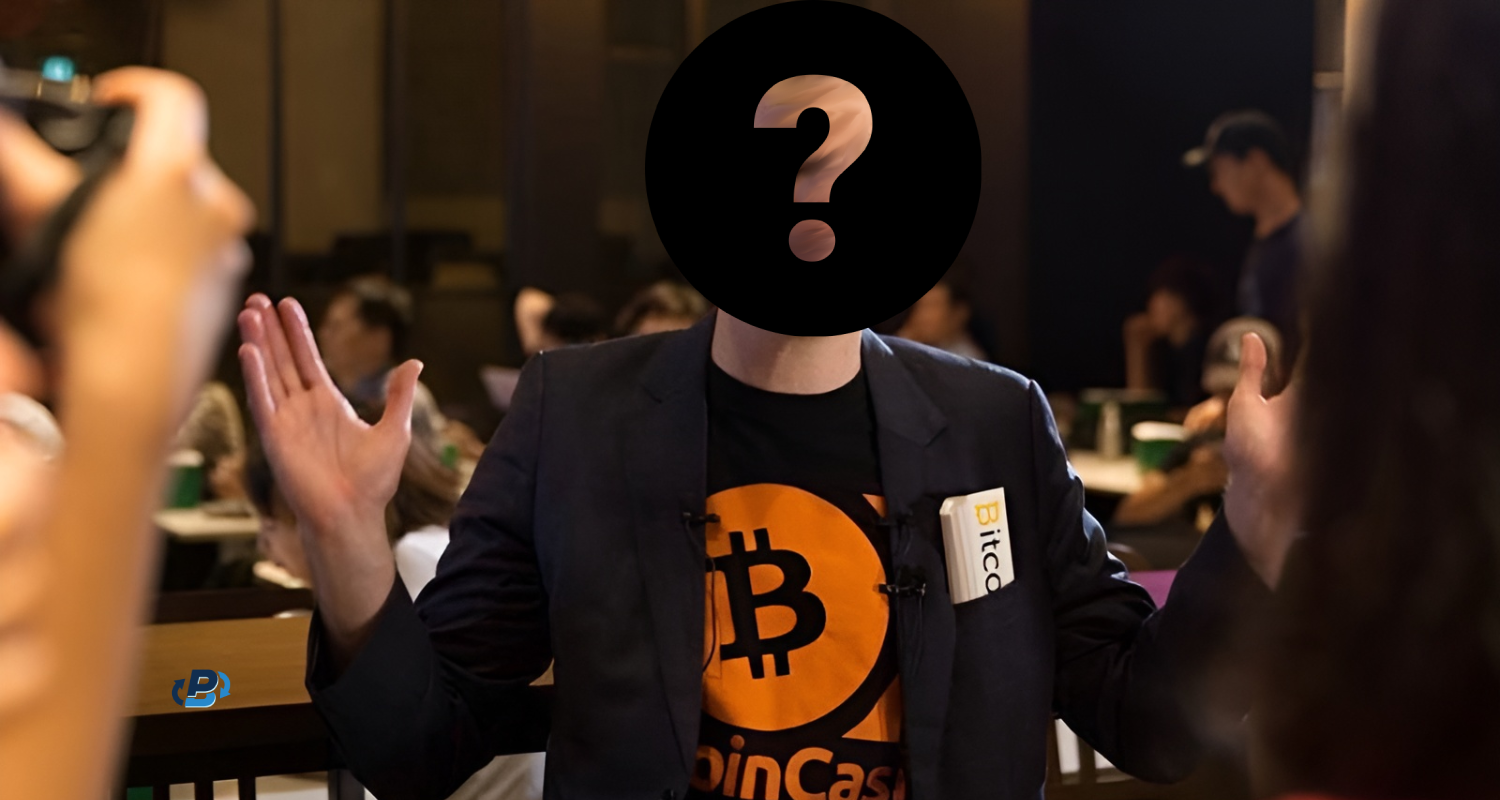Every industry has a few key figures who were both important and controversial in shaping it. Take Apple's Steve Jobs, for example, who not only revolutionized the smartphone industry but also transformed music and personal computing. In the early days of Bitcoin, it was no different. There were people who played major roles in building and shaping the cryptocurrency world, even if their actions and ideas sparked debates.
Certain names in Bitcoin history carry a weight that’s impossible to overlook. For those of us who have been lurking in the original Bitcoin forums in their early days, it’s hard not to associate the name Michael Marquardt Bitcoin known as Theymos, who developed the first blockchain explorer, BlockExplorer.com, which allowed users to check Bitcoin transactions with a simple user interface. He acted as the admin of Bitcointalk.org forum that was originally created by Bitcoin's founder Satoshi Nakamoto in 2009. Additionally, he was a moderator on r/Bitcoin subreddit, one of the largest online communities with over 4 million members. Michael had key roles in the two largest early crypto communities, making him an immensely influential figure and stirring controversy with his role in the Bitcoin Civil War.
In this PlasBit deep-dive, we’ll unpack the entire Michael Marquardt chapter of Bitcoin history, including his achievements, his impact on the crypto space and Bitcoin community, and the controversies that continue to define his legacy.
Who is Michael Marquardt?
Whether the allegations are true or not, Michael Marquardt is clearly a major character in the story of Bitcoin. Theymos had a drive that allowed him to single-handedly oversee the very successful operation of two huge online communities. He shaped the early Bitcoin ecosystem, set in place time-tested standards, and took initiative in early foundational discussions centered on everything from development and governance to messaging and PR.
For the longest time, not much was known about his pre-Bitcoin backstory. In a 2013 Reddit AMA thread, Marquardt did reveal that he was born in the early 90’s in the USA, but that’s almost all we knew. As for his entry into crypto, Theymos revealed that he learned about BTC in a 4chan thread when he was still a high-school student. He was instantly pulled into the decentralized sphere, quickly picking up the C++ programming language and putting it to good use.
The Making of a Bitcoin Legend
Theymos’ biggest claim to fame will always be his tenure as the head of r/Bitcoin and bitcointalk.org. But long before he made it to the top of the Bitcoin community pyramid, Marquardt wrote the first blockchain explorer, dubbed blockexplorer.com, and released it as a free service. It was the predecessor to blockchain.info and, much like modern explorers, it allowed users to quickly browse the open ledger and track transactions.
The contribution was met with much-deserved praise from the Bitcoin community. Consider the context: the prevailing Bitcoin myth of the time was that it’s a tool criminals use to hide their transaction. So, when blockexplorer.com made its debut, it was a huge optics win for the whole community, as the blockchain’s transparency became much harder to deny.
Theymos’ contribution was so successful, it impressed Satoshi Nakamoto himself. The creator of BTC made him the new administrator of Bitcointalk.org, effectively handing the forum over to him. Of course, Theymos jumped at the chance to run the place where the first Bitcoin ideas were hashed out.
As you can probably guess, it didn’t take long before Michael Marquardt became a living legend among Bitcoin supporters. People didn’t just trust him to be effective, they believed in him as an orbiter of truth. And for good reason – at first, Theymos was very loud and proud about the virtues of open discussion and decentralization. For instance, here’s a typical post from his early days:
The Fall of a Bitcoin Idol
When Theymos stepped in, he had his hands full. Afterall, that is a huge job: to moderate the discussion threads, enforce the rules, and not let the spam get out of hand. Even overseeing a small community like ours over at PlasBit can be a challenge. Well, Theymos did it on a huge scale, and with minimal help. But as the old saying goes, “absolute power corrupts absolutely”, and with time, Marquardt began to cut corners, eventually contradicting his own stated principles.
The DPR Subpoena Fiasco
In a December 2014 Bitcointalk thread, the admin issued an FYI, notifying the community that he has cooperated with a DPR request for user records, including deleted comments and private messages. The DPR subpoena encompassed all posts of every user who interacted with a 2010 thread titled “A Heroin Store,” which was authored by Silk Road Market creator Ross Ulbricht. In the thread, Ulbricht presents his idea as a thought experiment and asks users for input. Of course, as the whole world later discovered, he was planning out a very real darknet drug marketplace.
As you can probably guess, the feedback wasn’t very positive, with most privacy-oriented users questioning why deleted posts on an anonymous forum are archived if they’ll just be handed over to authorities.
Marquardt didn’t make it easy on himself either. He later explained that he often cooperated with law enforcement on what he called “real scams,” saying “I have received police requests a handful of times. Mostly the cases were real scams and I gave the police the requested info.” Although he claimed that he also refuses subpoenas regularly, the only example Theymos managed to come up with was a request from a foreign country’s SEC. As if that’s not enough, the admin decided to casually clarify that “Of course you should not trust that I will act in your best interest. If you want to be anonymous, then you must use Tor (or whatever).”
The DPR subpoena encompassed all posts of every user who interacted with a 2010 thread titled “A Heroin Store,” which was authored by Silk Road Market creator Ross Ulbricht. In the thread, Ulbricht presents his idea as a thought experiment and asks users for input. Of course, we now know that he was planning out a very real darknet drug market.
Users were also disappointed in just how late they received this information, with one member writing “This is an abominable precedent. When the subpoena arrives, the subpoena should go up. Not to mention that this thread was born well after the prosecution's discovery should have been submitted to the defense in the Ulbricht case.”
Considering that most of the comments posted to the DPR subpoena thread have probably been deleted by now, it says a lot that most of the remaining ones are negative. One long-time user summarized it best, saying “Whatever DPR or Ulbricht or the Alleged suspect did, the rule of Just law is paramount and people in the position to disclose requests for this information ought to disclose these requests as they are received. Sure, running or patronizing a darknet drug market is one of the stupidest things a Bitcoin user could do, but it is also very shitty for a trusted member of the community running a venue to just go ‘Hey I got a subpoena’ without offering its contents.”
Bias Accusations
Theymos enjoyed less and less public trust as more people began complaining of being censored when disagreeing with the majority opinion, especially when it comes to certain topics, like block size. Theymos’ team archived threads, deleted comments, and banned accounts that generated any noticeable amount of support for ideas that went against the so-called Bitcoin Core ideals.
If you believe his supporters, maintaining an iron grip of the conversation was the only way to keep the community coherent. But would discourse really devolve into tribal bickering without Marquardt’s guiding hand? Would the “free and open discourse on the forums” that he promised in 2013 truly threaten the future of Bitcoin as we know it? The truth is that we’ll probably never know for sure. It’s definitely not beyond the realm of what’s possible. But here’s the thing – when you’re centralizing discourse in a space built on the ideal of decentralization, people are going to start asking questions.
For us here at PlasBit, the debate is still ongoing – was Michael Marquardt Bitcoin’s ultimate advocate, or a control-freak gatekeeper?
What is Bitcointalk.org?
It’s difficult to overstate just how central Bitcointalk was to the community. By the time they started talking about BTC on the news, the forum hosted 2.4 million active users who were posting almost 1.5 million comments every day.
Originally, the forum now known as Bitcointalk was hosted on bitcoin.sourceforge.net/boards and ran by Satoshi. In November of 2009, it was migrated to the current site, but Satoshi remained admin until early 2011. Another Bitcoin legend, who goes by Sirius, took over for about a year, before the reigns were handed over to Theymos in 2012.
This wasn’t just any forum; it was the Library of Alexandria for everything Bitcoin. Though unlike a library, it was still full of loud, quirky people. If you logged in during the early years, you’d see threads started by Hal Finley and Satoshi, in-depth tech/finance debates, and posts from people complaining they only mined 250 BTC that day on their dual-core PC.
Enter Michael Marquardt
Under the watch of Theymos, Bitcointalk stayed organized and also continued to thrive as a go-to place for Bitcoin discussions. Given the role of admin, this also meant that Theymos had the final say as to what could or could not be posted. Thus, this lent him a sort of soft power in terms of the direction of the Bitcoin narrative. Another person may have rarely utilized it, but Marquardt leveraged this soft power at every turn, both to grow and to control the community.

Theymos was a master at flying under the radar with his moderation efforts, especially since his successes overshadowed any early complaints. Critics would have little recourse and even less ways to voice their concerns with both of the largest platforms censoring them. However, these voices grew much louder and eventually culminated in the most dire event of BTC history, commonly called the Bitcoin Civil War.
The Bitcoin Civil War and the Scaling Crisis
Before getting into the weeds of the so-called Bitcoin Civil War, let’s zoom out and review a breakdown of the main events. Here’s a timeline of how Marquardt ended up in the middle of a deciding moment in Bitcoin’s history.
- 2011: Theymos takes the reins of Bitcointalk.org and gets to work.
- 2013: Michael Marquardt becomes the head mod of /r/Bitcoin.
- 2014: Theymos reveals he complied with a subpoena for information regarding Silk Road’s Ross Ulbricht.
- 2016: Accusations of censorship on /r/Bitcoin and Bitcointalk arise as larger block supporters claim their posts are being deleted or discussions shut down.
- May 2017: The New York Agreement (NYA) - major Bitcoin businesses and miners sign on to activate SegWit along with a 2MB block size increase.
- July 2017: SegWit is locked in for activation, but the disagreement over the block size increase heats up. Theymos and Bitcoin Core publicly come out in opposition to the NYA.
- August 1, 2017: A fork creates Bitcoin Cash, BCH, and its large chain of 8MB blocks when big blockers break away from Bitcoin, BTC.
- August 2017: An open letter to Theymos, which gains much traction on Reddit, reaches out to him with accusations of censorship and trying to centralize control over the narrative on Bitcoin.
- Late 2017: NYA falls apart; SegWit is adopted on Bitcoin, but block size increase never happens.
- Post 2017: BTC steers towards the “digital gold” framework that institutions love so much, while BCH claims to carry on as the “intended” version of the first crypto, which is simply a form of payment.
The Brewing Civil War
By 2015, just six years after the world’s first BTC transaction, Bitcoin had officially outgrown its infancy. What was once a kludgy tech experiment was now, at this point, processing millions of dollars' worth of transactions daily, and all manner of cracks began to show. The 1MB block size rule, which was actually originally a way to prevent spam, was bottling up the blockchain, increasing fees and, thereby, preventing BTC from being a viable every-day currency. Delays arose, fees started to climb, and people finally began to ask an important question: How to scale Bitcoin without breaking it?
This question didn’t have an easy answer. On one side, the Bitcoin Core team and its supporters argued for careful, incremental changes. They believed the key was to stick with the small block size and scale using second-layer solutions like the Lightning Network. On the other side, the big blockers wanted to make Bitcoin more usable for everyday transactions by simply increasing the block size to allow more data per block. It seemed like a straightforward solution, but Core supporters worried it would make Bitcoin more centralized by making it harder for ordinary users to run a full node.
What started as a technical debate spiraled into an ideological war over Bitcoin’s future. Was it “digital gold” for long-term value storage, or was it still meant to be the peer-to-peer cash Satoshi described in the original white paper?
As admin and mod, Marquardt was more than part of the debate; he was controlling the rooms where most of those debates were happening. People who sided with the big blockers felt silenced, which reminded them of exactly the kind of restrictive censorship the community advocated against. Posts supporting bigger blocks were being deleted on /r/Bitcoin, and threads critical of Bitcoin Core would often disappear. Theymos had evolved into a kind of gatekeeper for Bitcoin's narrative, and not everyone was okay with that.
The New York Agreement: A (Fleeting) Hope for Bitcoin Peace
By 2017, these tensions had reached boiling point, and some of Bitcoin's most influential businesses and miners decided to step in. They got together in New York and hashed out a compromise, calling it the New York Agreement, or NYA for short. The supposed plan was to implement Segregated Witness, a technical upgrade which optimized space in each block, and then to double the block size to 2MB.
On paper, it sounded like a win-win: SegWit would fix some of Bitcoin's inefficiencies, and the bigger blocks would keep the number of transactions ticking over. It didn't take very long for the bottom to fall out.
The Core developers, with Theymos, emerged to fight against the NYA. For them, the block size increase to as much as 2MB would amount to a slippery slope toward centralization. Theymos let his feelings be known, and his platforms now became theatres of war, places where the Core narrative would completely dominate. In the middle of 2017, it was already obvious the NYA was dead in the water. SegWit was adopted, but the block size increase was quietly set aside, leaving the big blockers feeling they'd been double-crossed.
The Hard Fork That Changed Everything
In August of 2017, frustrations overflowed, and big blockers took a major drastic step: they forked the Bitcoin blockchain and created Bitcoin Cash. BCH embraced larger blocks, starting off with 8MB, and touted itself as a faster and cheaper alternative for everyday transactions.
The fork wasn't just a technical one but more of an ideological split. Bitcoin went full bore into being a “store of value” while Bitcoin Cash implemented itself into “Bitcoin’s true vision” of peer-to-peer cash.
Although the hard fork is widely seen as the end of the Bitcoin Civil War, neither side ever really lost. The Core crowd got their “pure” store of value, while the other side rallied around BCH, which became a success in its own right.
The Reddit Open Letter to Michael Marquardt
In 2017, at the height of what has by that point been termed the Bitcoin Civil War, an open letter to Theymos appeared on Reddit. If the intention of the letter was to stir the pot, then it did its job.
The biggest complaint? That Theymos was moderating the discussions to death, banning posters that were perceived to run counter to the Bitcoin Core narrative or that favored raising block sizes. Basically, half of the whole community said his moderation wasn't tight; it was clear censorship. And in a space where decentralization and open dialogue are practically sacred, that was a big deal.
The author of the letter didn't mince words either: according to him, Theymos was turning these forums into an echo chamber in which just one side in the scaling debate was ever represented. As far as he was concerned, this wasn't simple unfair moderation; for him, this was betrayal. To him, Bitcoin was supposed to mean freedom and decentralization-giving one's voice, but in the light of Theymos, those very same ideals were being trampled at the altar of one agenda.
The open letter laid it all out:
- Censorship: It was alleged that Theymos was removing posts that were in disagreement with his or Bitcoin Core's vision, banning users and discussions that did likewise.
- Killing Free Speech: In doing so, it was felt by many that Theymos was compromising Bitcoin's core value of decentralization through silencing opposition.
- Gatekeeping the Narrative: According to the letter, Theymos was in control of how the story of Bitcoin was told, especially on platforms where most of the community got their news and updates.
Arguably, the most scathing lines of the letter: “Is this the Bitcoin we fought for?” That cut deep. Theymos wasn't just being called a bad moderator—he was being accused of betraying the principles that had made Bitcoin what it was.
Of course, Michael Marquardt still enjoyed a lot of support, albeit nowhere near as much as he had before the scandal. A staunch Theymos defender and fellow r/Bitcoin mod, best known as Cobra, tried to argue with the open letter’s author, but only made things worse. He justified the forum’s admin saying “He just knew what would happen to his sub if he didn't do something. You guys would have thoroughly destroyed r/bitcoin and turned it into a propaganda place for pushing dangerous projects…There's a good chance that if theymos didn't do what he did, we would be suffering from 20MB blocks right now and have Mike and Gavin as our benevolent dictators… The people that complain about "censorship" are just frustrated that they can't use the communities managed by theymos to push their agenda through astroturf campaigns, shills, and creating propaganda with simple talking points to fool technically naive new users.”
As you can expect, the comment earned dozens of downvotes and a series of angry replies.
What Doesn’t Kill Bitcoin Makes It Stronger
After 2017, the Bitcoin ecosystem started to look very different. By then, BTC had established itself as "digital gold, and the narrative migrated from a peer-to-peer cash network to a store-of-value narrative. For institutional investors watching from the sidelines, the way Bitcoin stayed strong during the Civil War was a sign of confidence. Further, the adoption of SegWit, development of second-layer solutions such as the Lightning Network, and most importantly, protocols that increase interoperability, made Bitcoin kosher for the financial establishment.
Institutional Players Enter The Fray
The Michael Marquardt Bitcoin forums peaked during the height of the crypto grassroots era, but the more of that long-anticipated mainstream adoption Bitcoin received, the more it involved institutional whales such as hedge funds, corps, and banks. The point of no return for adoption is generally considered to be the release of the CME Group's Bitcoin futures. In the year 2020, companies like BlackRock would raise the ante with Bitcoin ETFs and make Bitcoin a mainstay of the world's investment scene. It may have started as a symbolic moment, but Wall Street is finally, publicly, and loudly embracing cryptocurrency.
Legacy of The Michael Marquardt Bitcoin Saga
Michael Marquardt's reign as a gatekeeper of sorts during the Bitcoin Civil War served as a manifestation of a greater cultural shift. After all, his ownership of Bitcointalk and /r/Bitcoin wasn't entirely a bad thing, which further muddies this debate. In fact, many would say that even if all the allegations are true, the way he amplified awareness of Bitcoin overshadows the worst wrongdoing he’s accused of. If the Bitcoin forums did not blow up during those years, Bitcoin adoption could have been set back by a number of years. So we here at PlasBit are grateful for both Marquardt’s contributions to the crypto space and the lesson he taught us about the pitfalls of centralization.













